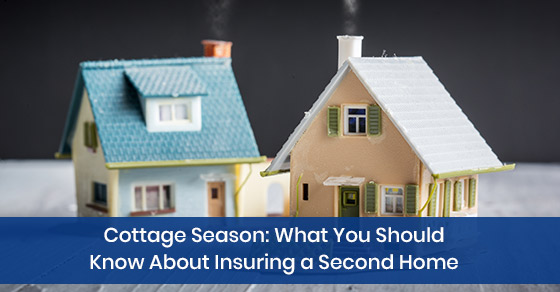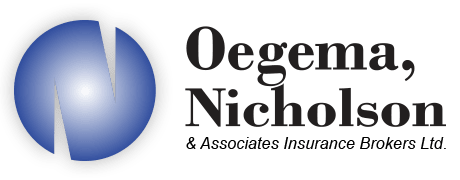Cottage Season: What You Should Know About Insuring a Second Home
Owning a cottage provides a much-needed retreat from the stress of everyday life. While your cottage offers a place family and friends can gather for rest and relaxation, it’s also an additional property you have to maintain. One of the costs cottage owners should never skimp on is having proper insurance coverage. There are many assets related to your cottage, from the contents to the outbuildings, docks, and recreational vehicles. Often cottage owners assume everything at the cottage is covered, when in fact, it is not. If you are renting out your cottage to other people, this could also lead to challenges when making a claim. If you own a cottage and are wondering what coverage you need, here we review everything you should know about insuring your second home in the country.
What insurance is needed for a second home?
Second-home insurance is a little different than primary home insurance because it is dependent on how you use the home. For example, is it being used strictly by your family, or do you rent it out occasionally or on an ongoing basis? For rental cottages, you will want a more comprehensive package to cover all of your bases. Should your cottage be lost entirely due to fire or severe weather, proper rental coverage allows you to receive compensation for lost income when the cottage is inhabitable. Homeowners insurance typically only covers replacement costs for the damages.
What other insurance is needed for my rental cottage?
While you will want to include loss-of-income coverage for your rental cottage, you will also need personal liability insurance. Renting leaves you vulnerable to potential lawsuits should a tenant injure themselves on your property. From falling off an unsecured dock to accidents on watercraft, even if the accident is not 100% your fault, you could end up having to pay for their damages, lost wages, medical bills, and more. Some insurance policies only cover a limited rental period, so be specific on the timing of your rental “season,” i.e. is it all year round, May to October, etc.
Your Cottage Location
Considering any additional risks posed by your cottage location is extremely important for insurance policies. For example, most cottages are located on or near water, such as rivers and lakes. This could leave your property more vulnerable to damage from flooding.
Vandalism and Burglary
Because your second home often sits vacant for long periods of time, your home is more at risk for crimes such as burglary or vandalism. You can pay higher premiums due to the risk for crime, and therefore you might want to consider getting a state-of-the-art security system. This can save you quite a bit of money for premiums, while also providing you peace of mind when you are not at the cottage.
Limitations of Seasonal Home Coverage
Another reason that cottages pose a higher risk is, again, that they tend to sit empty for long periods. As a result, your cottage might suffer worse damage because the damage remains undetected over time. For example, minimal water damage can become catastrophic if it is not addressed, and can quickly lead to extreme issues such as mould growth, damage to furnishings, and worst of all, structural damage to the foundation. Your insurance policy should list specific perils to make sure damages such as these are covered.
Remote Locations
If your cottage is located on an island, or is even more isolated and requires fly-in access, this can have an impact on your premiums. This is because it makes it more difficult to access for something like a fire, and also increases labour costs for repairs and replacements should the unthinkable occur. Hard to access cottages will require special coverage, so always be clear on location, so you are fully protected.
Cash Value vs Replacement Cost
Cash value and replacement cost refer to how the insurance company calculates the payout when you make a claim. If you have a fire or severe damage due to a storm, the cash value of your cottage and how much it costs to actually replace are quite different. If you have to rebuild, you want to be covered for the replacement costs. With this type of policy, you need to keep your insurance company up to date on renovations, so you are covered for all improvements.
Maintenance Affects Claims
Just like your primary
home insurance, if you do not properly maintain your cottage, you could be at risk of claim rejection. Many insurance policies include clauses that state that you must have regular care and maintenance for your property, including regular visits to your cottage to look for damages that can get worse if not addressed right away. If this is one of the clauses in your insurance policy and you do not provide proper upkeep for your cottage, your insurance provider has the right to deny your claims.
Outbuildings and Structures
This is an essential
consideration for cottage insurance as many cottages have docks, boathouses, bunkies, outhouses, etc. that must be mentioned on the policy if you want to be included. These options are often referred to as Detached Private Structures, which requires all outbuildings, and related structures are mentioned if you want to protect them under your policy.
Boats, Watercraft and ATVs
Many cottage owners store boats, watercraft, and other recreational vehicles at their cottages and assume this is automatically included in their cottage policy. However, there are limitations to coverage, and therefore it is advised you arrange for separate policies to protect all your assets.
Cottage Contents
Cottage coverage works much the same as home insurance in that it won’t automatically cover the full contents of your cottage. There are limits and therefore you want to ensure everything is listed, as, modern cottages tend to have all the luxuries and comforts of home such as electronics, home entertainment, appliances, etc. Another thing to note is that while things you bring to your cottage, such as clothes are
covered under your home insurance policy, belongings permanently stored at your cottage are not necessarily covered automatically. Providing a cottage inventory to your insurance company will make it easier to make a claim for contents. For more information about cottage insurance, call Oegema Nicholson at 613-704-7766 or
contact us here.


